Nô Firmanta: Winner Profiles
February 8, 2024
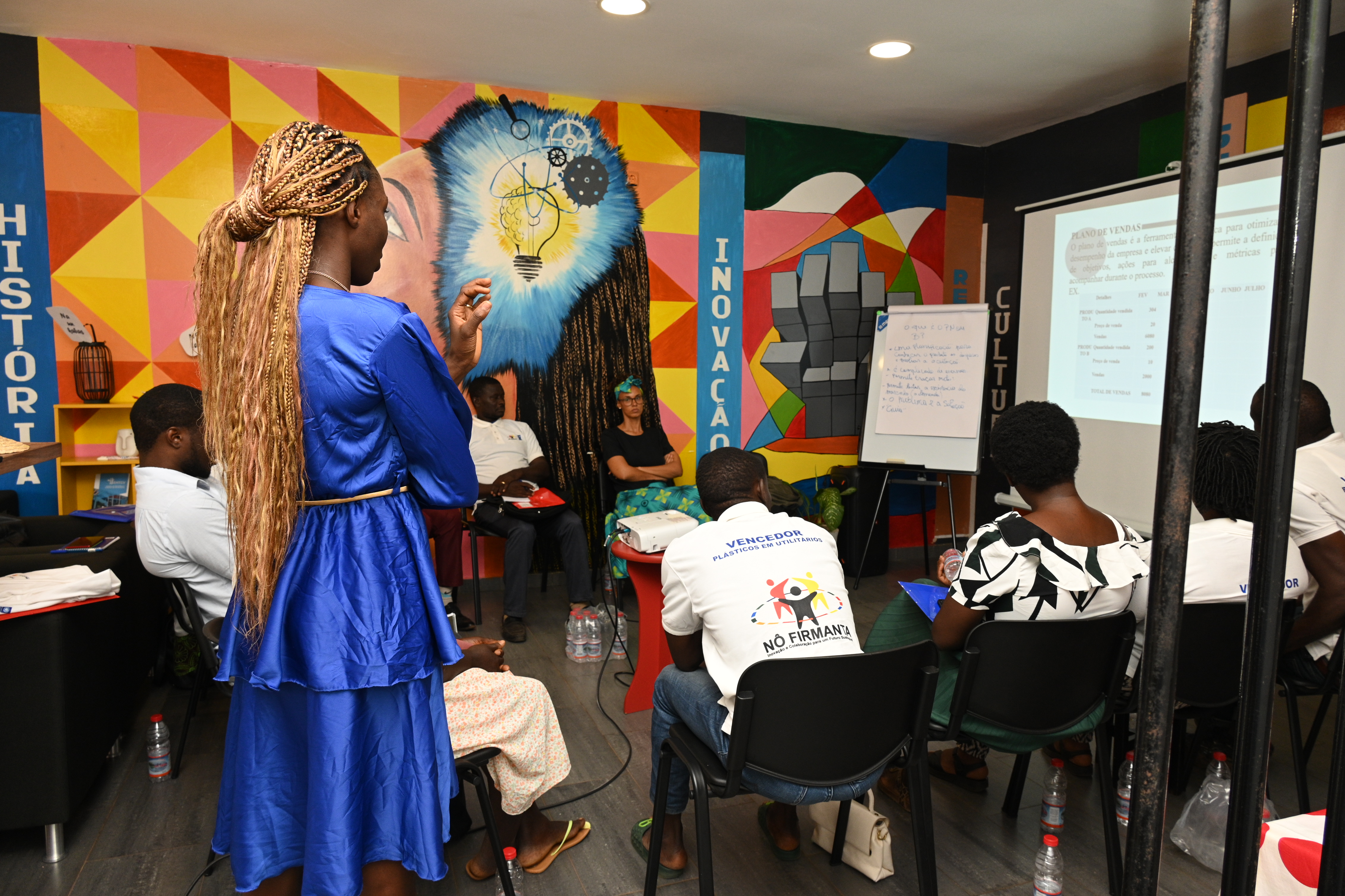
Nô Firmanta winners working during capacity building week in Kau Criar.
The Nô Firmanta initiative has been an opportunity to support entrepreneurs in joining and enriching the entrepreneurial ecosystem in Guinea-Bissau. The winners represent a diverse background spanning five of Guinea-Bissau's regions, encompassing industries including agriculture, digital, healthcare, climate action, and renewable energy. Selected from a pool of over 3000 applicants, each winner embodies the essence of entrepreneurship, with ventures that are not just income-generating but also innovative and transformative.
Nô Firmanta stems from a UNDP internal collaboration between the Accelerator Lab, Na No Mon Platform and the Economic Unit, which have developed this initiative based on the lessons learned and insights gathered from previous work in grassroots and community work. The initiative champions bottom-up solutions, tapping into the rich tapestry of local knowledge and expertise. This approach fosters community ownership and sustainability, ensuring that solutions are not only impactful but also enduring. Delve into their profiles and learn more about each winner through their unique profiles below.
For more information on the Nô Firmanta initiative, please read the blog series (Nô Firmanta: An opportunity to Scale) and (Nô Firmanta: Lessons About Leaving No One Behind).
Samira da Silva, Nha Dinheru
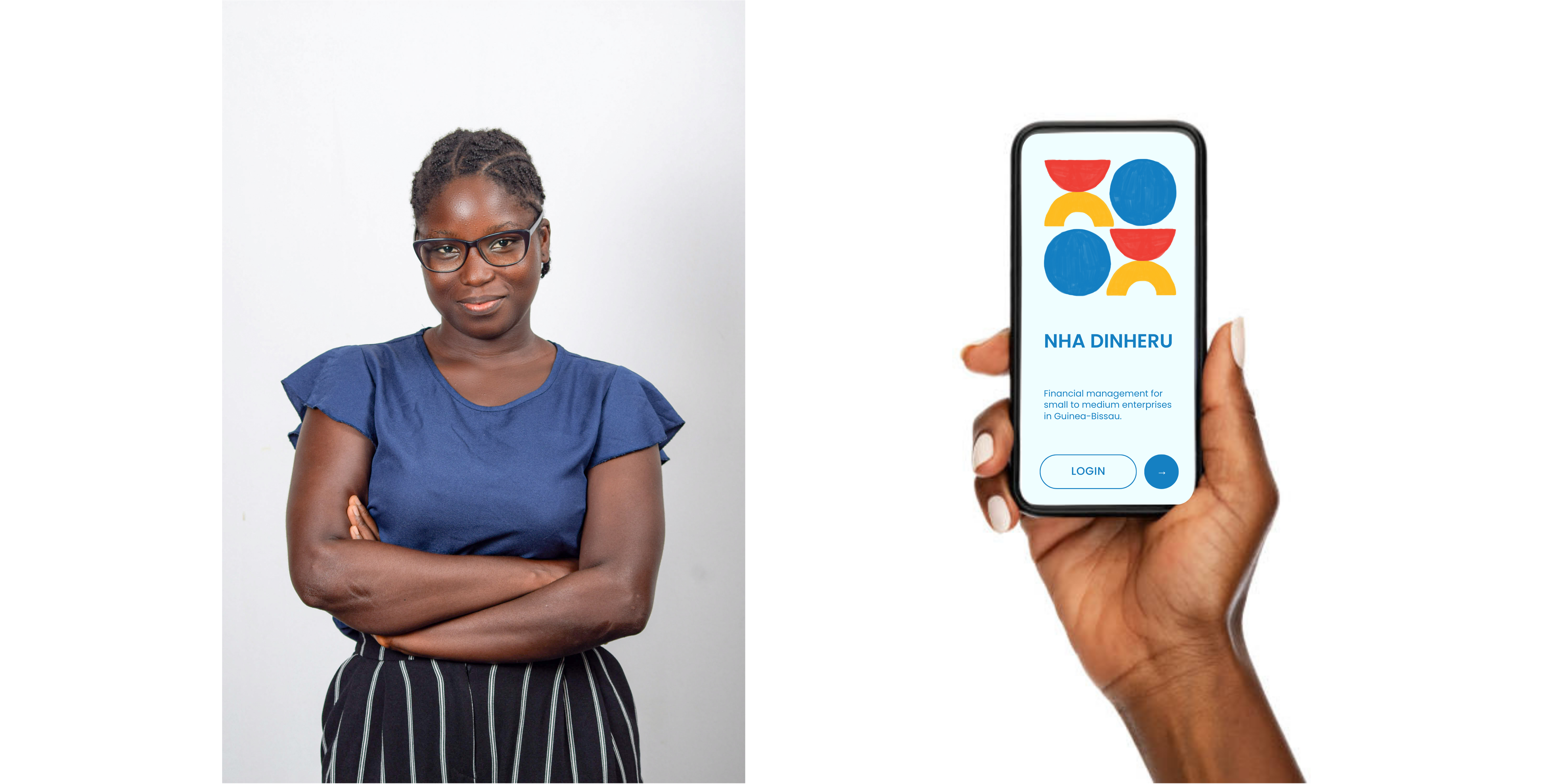
Samira da Silva owner of Nha Dinheru, an app developed for SMEs in Guinea-Bissau.
| Area of Focus: | Digital |
| Region: | Autonomous Sector of Bissau |
| Product/Service: | Mobile App for financial management for small and medium-size businesses. |
| No. Employees: | 2 |
Nha dinheru is a digital business idea focusing on the creation and sale of a mobile application tailored to the needs of Guinean entrepreneurs, particularly small businesses lacking access to sophisticated accounting software. These mobile app, compatible with Android devices, will offer efficient business management tools such as accounting entries, invoicing, and customizable features. By providing accessible solutions downloadable from major app stores, the goal is to introduce a dynamic service to streamline buying, selling, and transactions for Guinean entrepreneurs.
Natacha Có, Ninho de Ovos Sarl
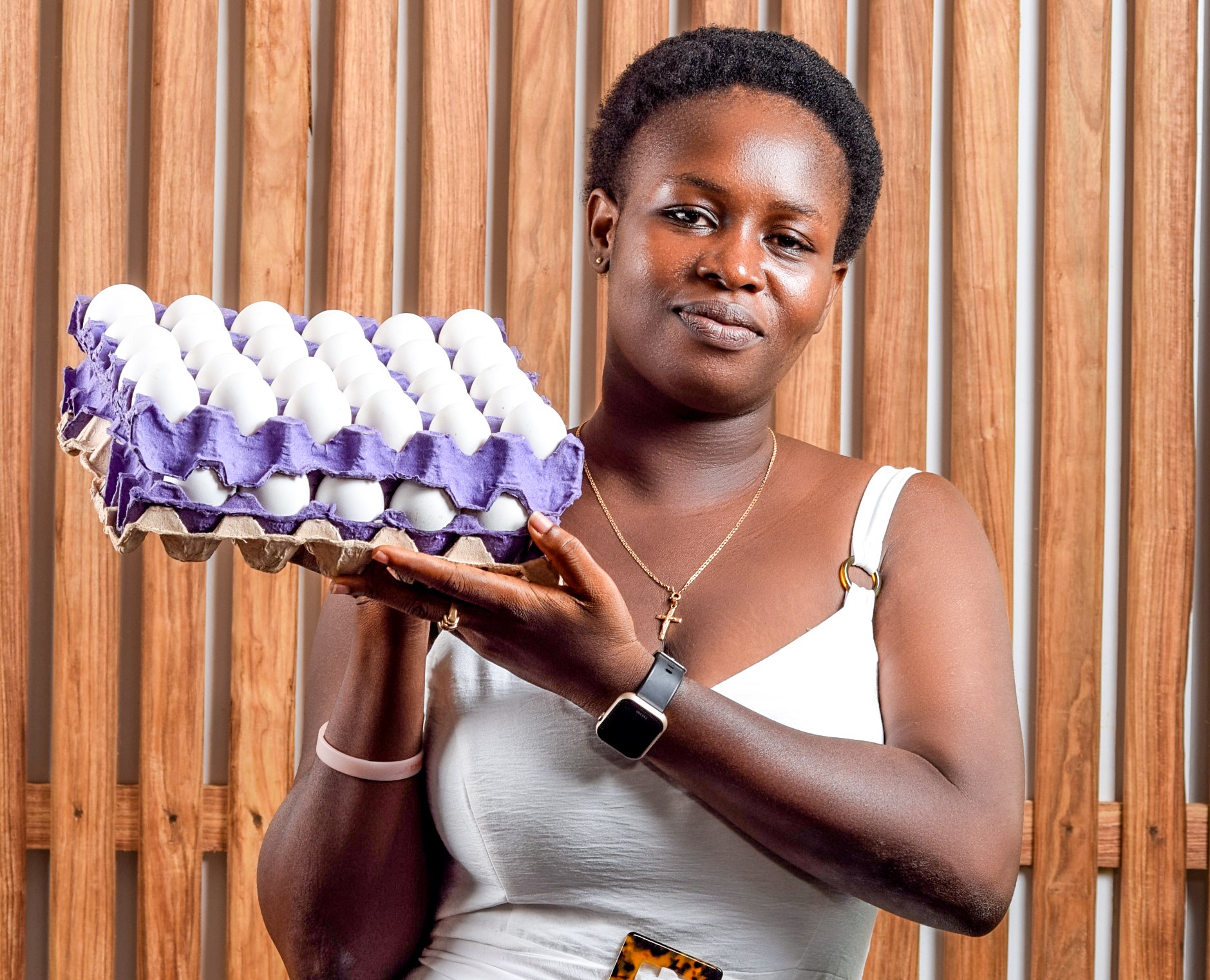
Natacha Barros owner of Ninho de Ovos Sarl.
| Area of Focus: | Agriculture |
| Region: | Autonomous Sector of Bissau |
| Product/Service: | Chickens and chicken eggs. |
| No. Employees: | 5 |
Ninho de Ovos is a company specializing in egg and chicken production, born out of the egg shortage in the Bissau market. Starting with a small aviary housing 20 hens, the company has since expanded its capacity to over a thousand hens. Managed by a team including a poultry farmer veterinarian technician and four poultry farming professionals, the primary objective is to produce and market local eggs, reducing reliance on international imports and addressing the local market demand, which currently lacks locally sourced eggs.
Dalanda Só, Damaia
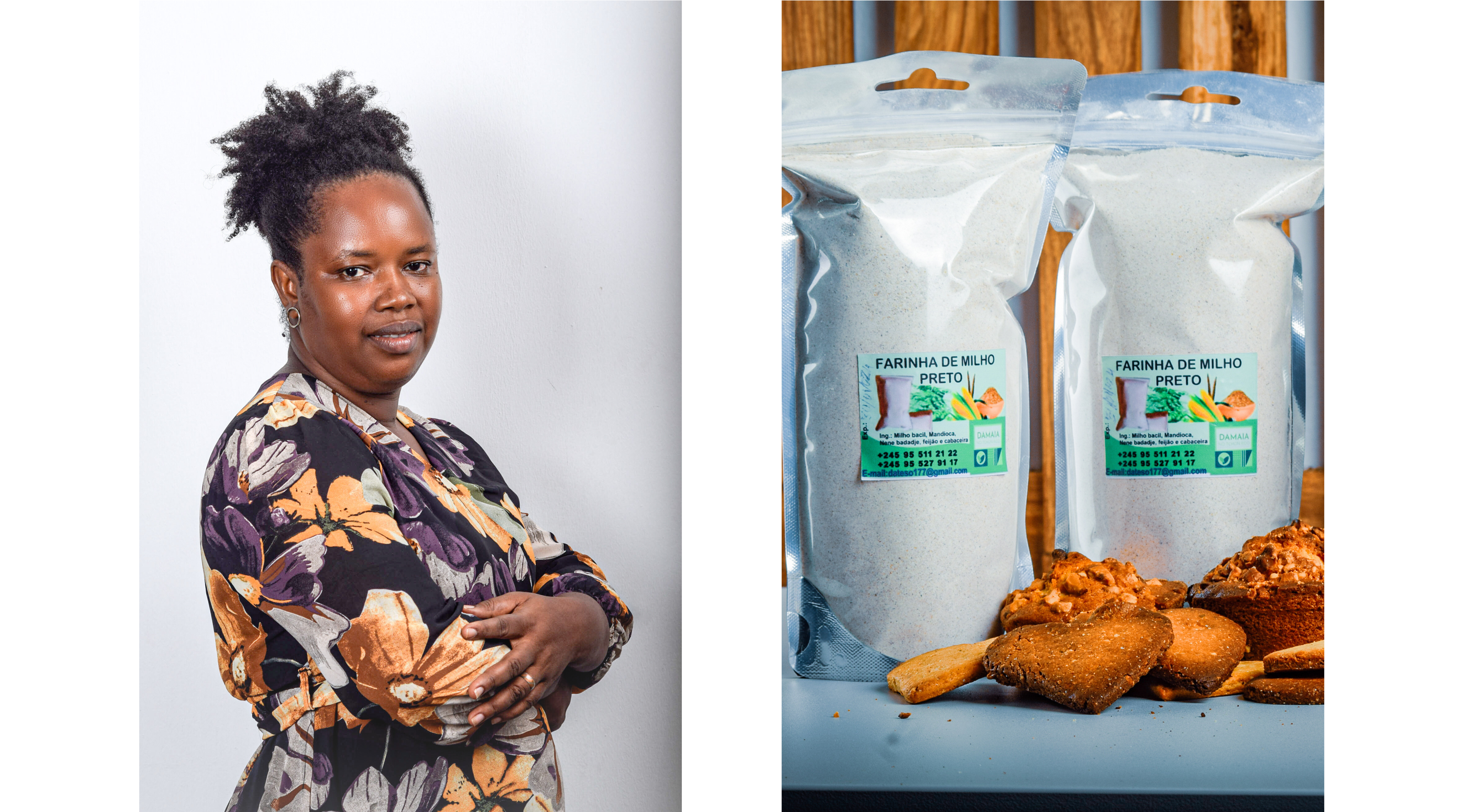
Dalanda Só, owner of Damaia.
| Area of Focus: | Agriculture |
| Region: | Oio |
| Product/Service: | Natural soap, black corn flour and cuntxur (traditional dish made from crushed rice and peanuts) |
| No. Employees: | 6 |
This business aims to address food security and nutrition challenges by processing and transforming local products into medicinal soap and nutritious foods like black corn porridge enriched with cassava flour, beans, bacil corn, and moringa. These products target diabetes management and malnutrition, promoting a shift towards consuming local produce and reducing reliance on chemical and international products. By directly engaging local farmers and encouraging diversification and value addition in cultivation, the business contributes to improving livelihoods and fostering a healthier community. Its primary objective is to tackle local issues related to food safety, nutrition, overall health, and skin wellness through product innovation and promotion of local consumption.
Pitágura da Silva, Jardim de Eden
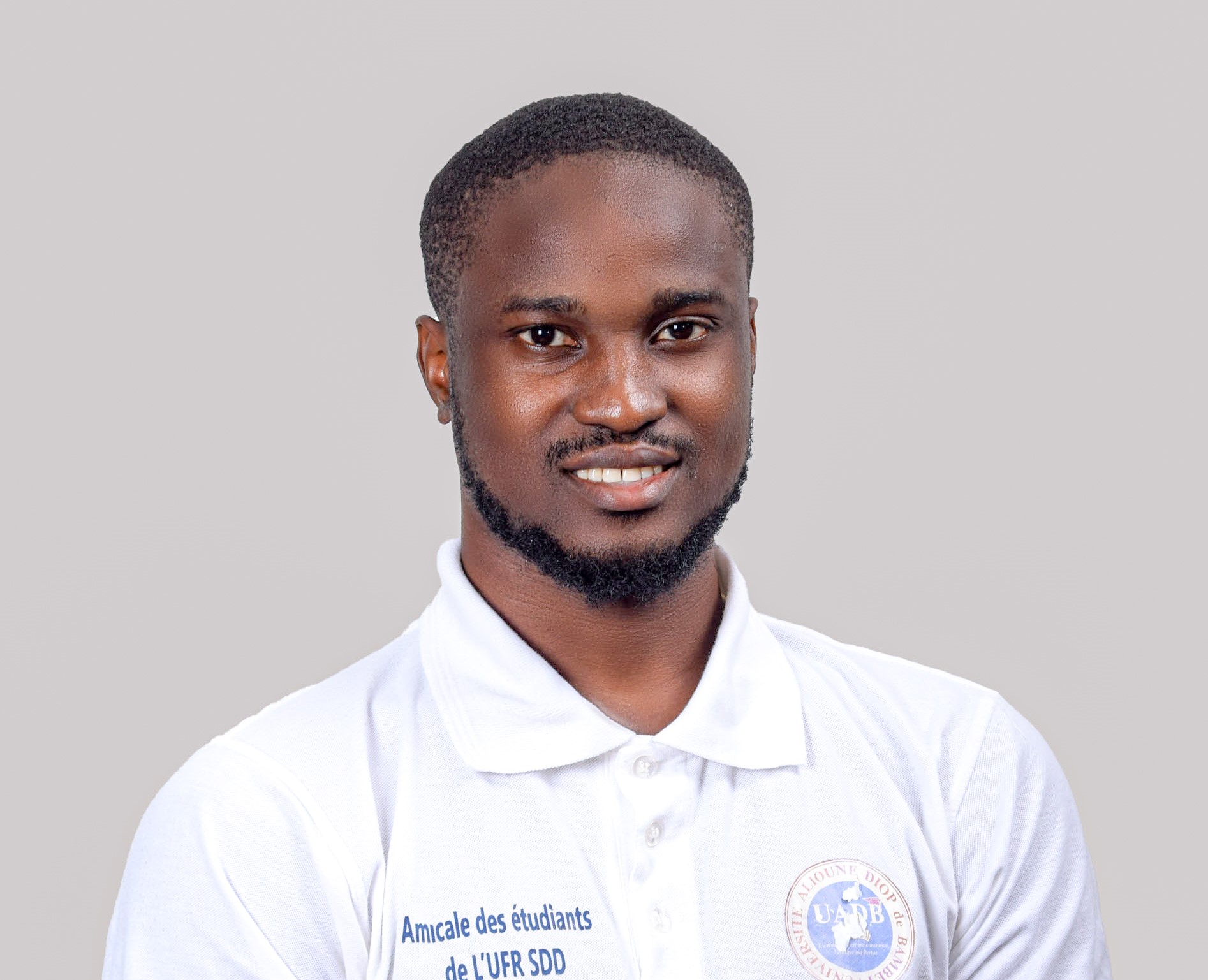
Pitágura da Silva owner of Verde e Bonito.
| Area of Focus: | Agriculture |
| Region: | Cacheu |
| Product/Service: | Nursery of fruit tree and flowers, biofertilizers and biopesticides. |
| No. Employees: | 3 |
The project aims to establish a nursery and produce biofertilizers and biopesticides, promoting eco-friendly practices. Plants will be sold on demand, with delivery and collection facilitated by tricycle bicycles to minimize pollution. Additionally, the project will provide ornamental services, including flower pruning and planting, along with selling compost and bio products to farmers and intermediaries to foster agroecology. Treatments using biopesticides and biofertilizers will be offered to enhance crop health and productivity.
Abrão Rodrigues, Badjudessa
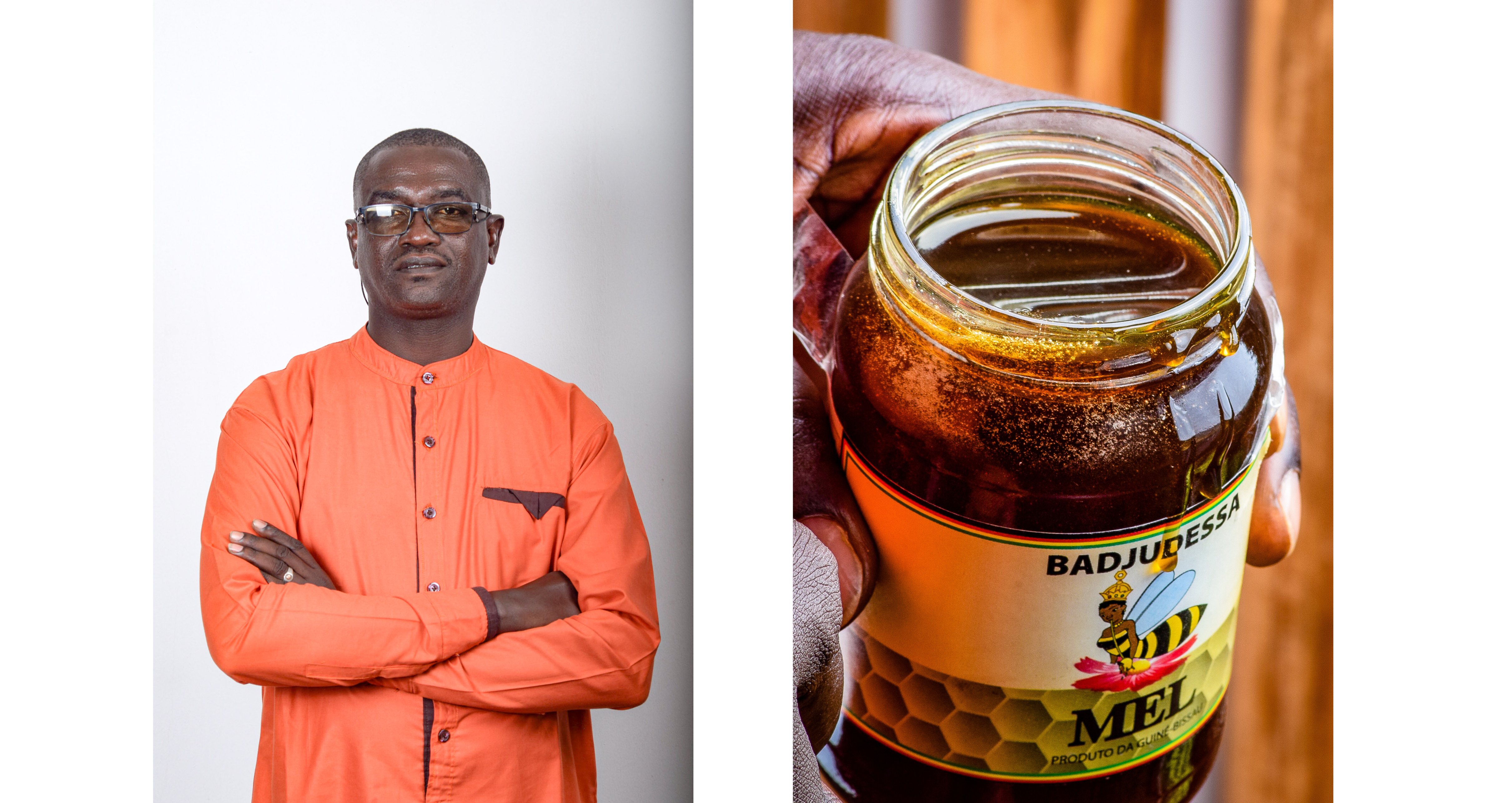
Adão Rodrigues, owner of Badjudessa.
| Area of Focus: | Agriculture |
| Region: | Gabu |
| Product/Service: | Black soap made from honey, and black corn with honey extract. |
| No. Employees: | 15 |
This innovative business focuses on producing organic honey using modern hives, techniques, and technologies. Additionally, the company processes various products such as porridge flour enriched with dried fruits, peanut sweets, cakes, and honey-based soaps under the trademark BAJDUDESSA. To support distribution, an exclusive agency has been established, and multiple communication channels including social media, advertising boards, and posters are utilized to enhance sales. The primary goal is to boost honey and processed product production while promoting healthier food choices.
Guida Baldé, Cooperativa Mulheres
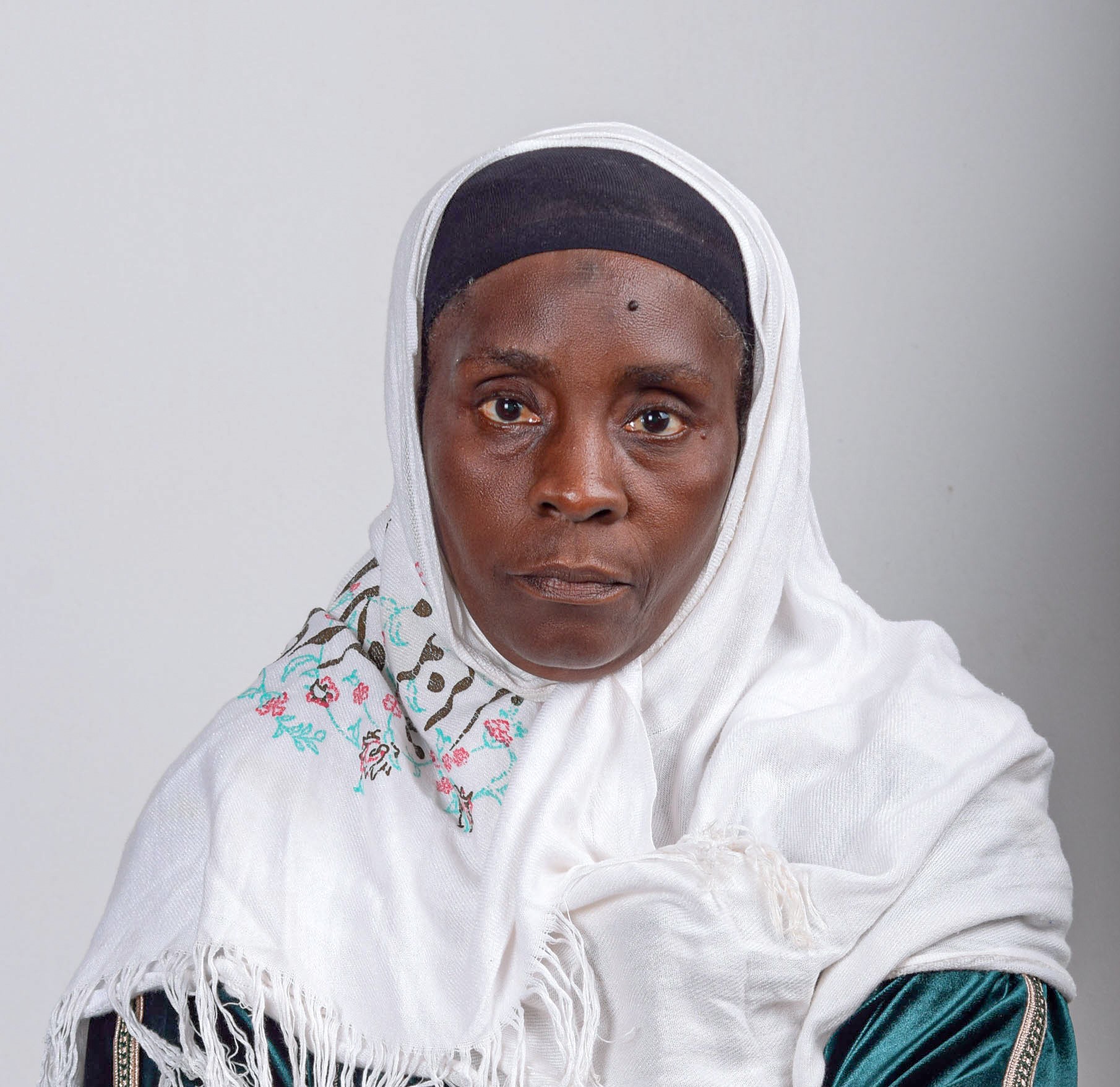
Guida Baldé, president of Cooperativa Mulheres
| Area of Focus: | Agriculture |
| Region: | Gabu |
| Product/Service: | Organic vegetables |
| No. Employees: | 4 |
The women's horticultural cooperative aims to empower its members by cultivating large quantities of vegetables and legumes, providing them with a sustainable source of income to support their families, including expenses for education, healthcare, and nutrition. The cooperative prioritizes organic farming practices and adheres to strict hygiene standards during processing and packaging. Utilizing diverse communication networks, the cooperative facilitates easy ordering and delivery of their produce.
Haua Embaló, Nha Lua
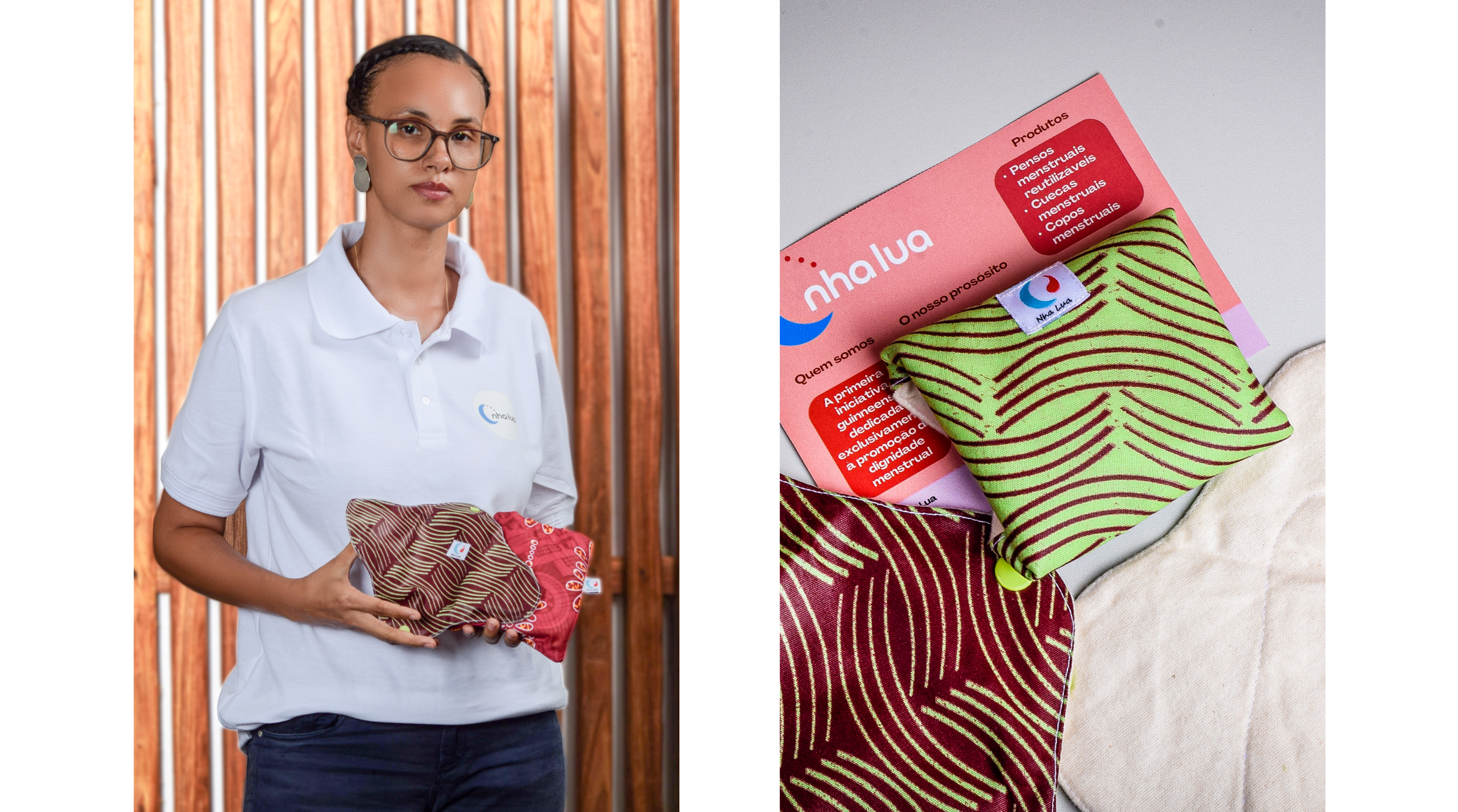
Haua Embaló, creator of Nha Lua menstrual health products and services.
| Area of Focus: | Health |
| Region: | Autonomous Sector of Bissau |
| Product/Service: | Reusable menstrual pads, menstrual underwear and education. |
| No. Employees: | 5 |
Nha Lua, launched in May 2021, aims to address the challenges faced by women and girls during menstruation in Guinea-Bissau. By promoting menstrual dignity, it offers reusable underwear and sanitary napkins while providing scientific information free of stigmas and taboos. The solution focuses on promoting menstrual education, producing sustainable menstrual products, and improving the quality of life for girls and women by fostering self-care, health, and body understanding.
Demba Cabi, Mon di Bás
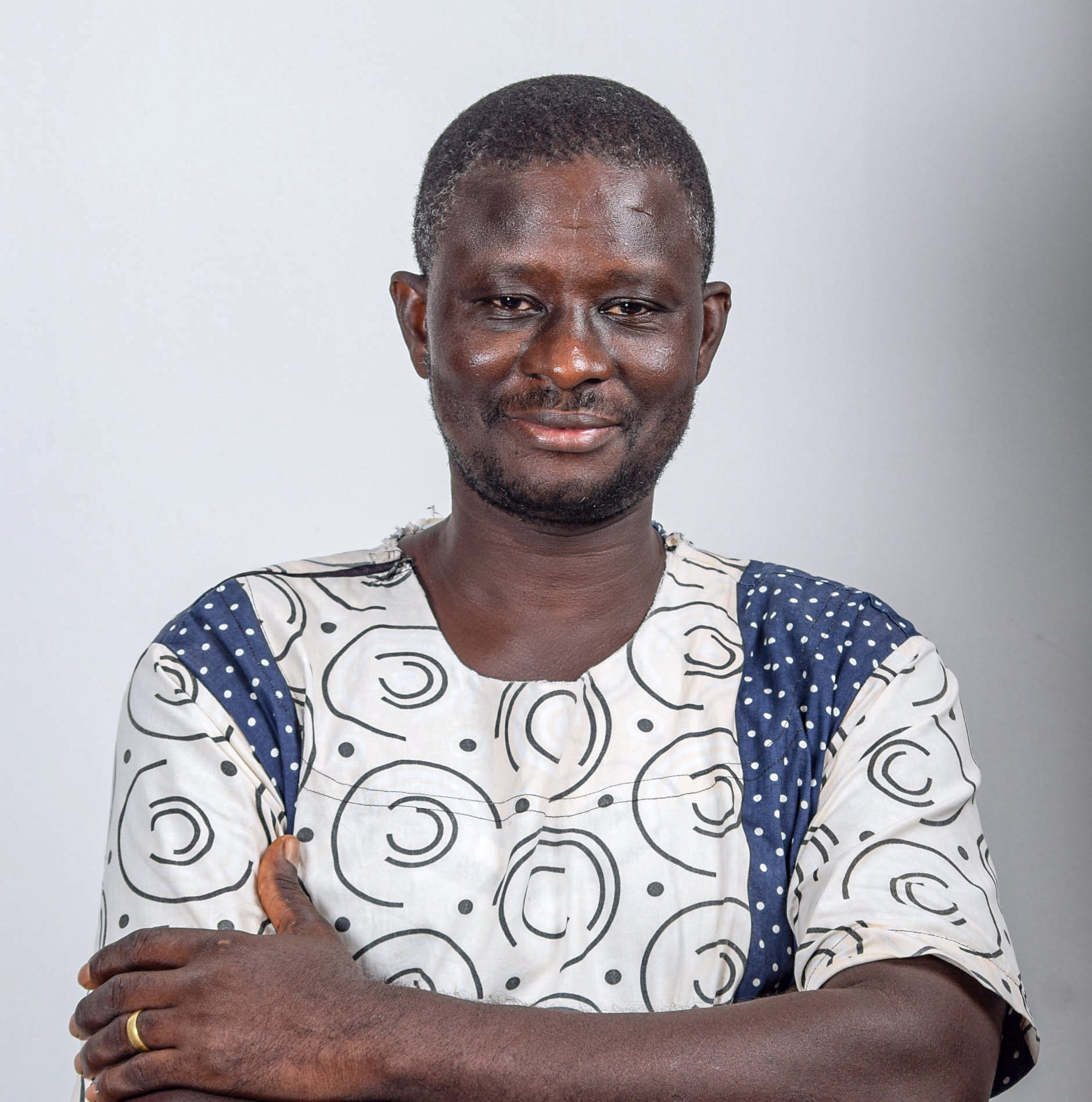
Demba Cabi, president of the Animal Cooperative.
| Area of Focus: | Agriculture |
| Region: | Oio |
| Product/Service: | Animal farming and production of animal ration. |
| No. Employees: | 3 |
The aim of this solution is to establish an animal cooperative to supply quality meat to the local market, create employment opportunities, and market derived products. The cooperative will directly supply Olossate markets in Bissorã, Bula, and other locations, as well as supermarkets, hotels, and restaurants through contractual arrangements. Genetic improvement techniques will be employed to enhance productivity by modifying the genetic composition of goat herds, pig breeds, and laying hens through selective breeding based on genetic differences within the same breed or lineage. This selection process aims to identify and mate the best breeds to improve overall productivity.
Ninte Na Canhe, Plásticos Utilitarios
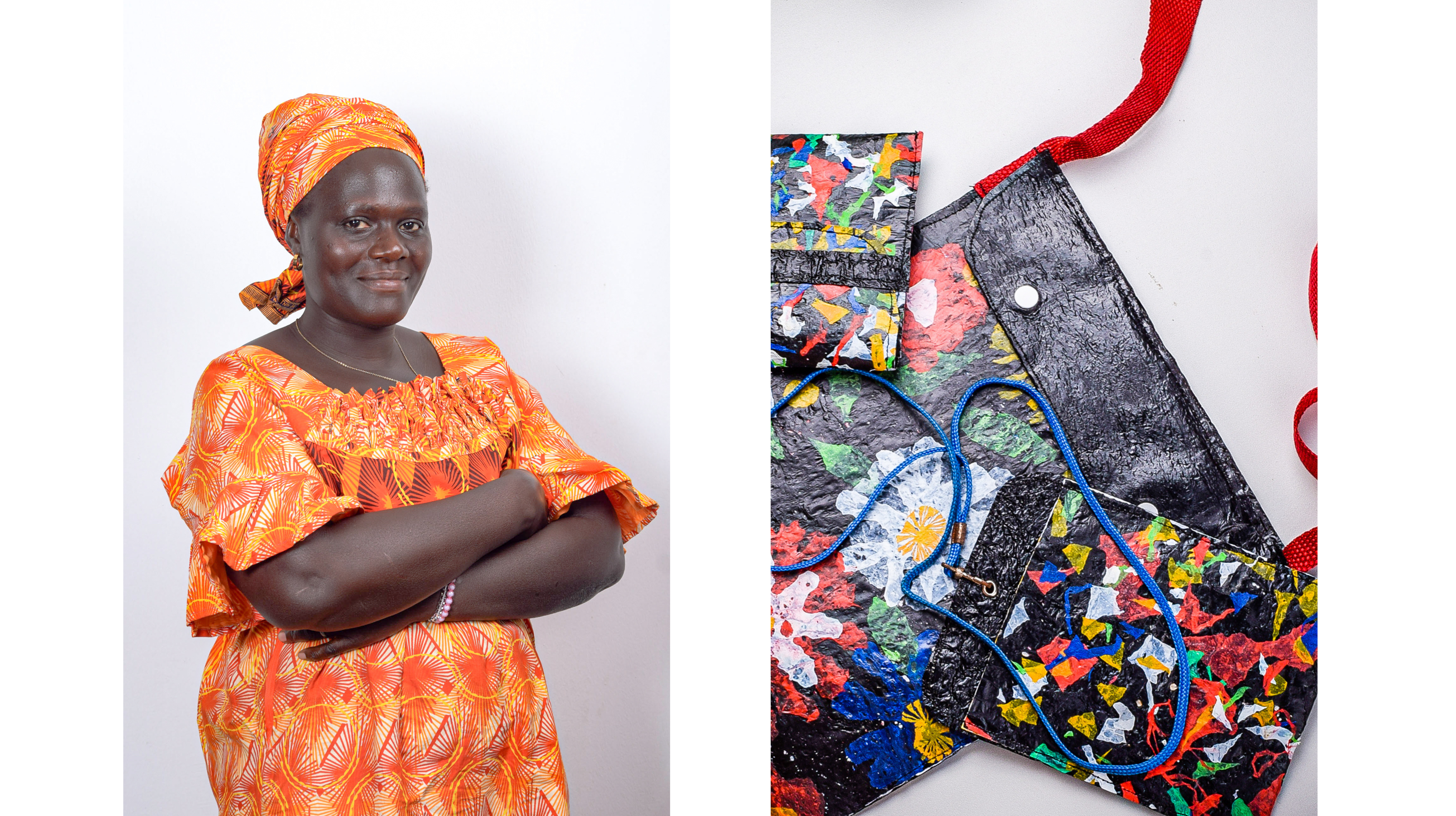
Ninte Na Canhe owner of Plasticos Utilitarios.
| Area of Focus: | Climate Action |
| Region: | Quínara |
| Product/Service: | Purses, bags, notebook covers, phone cases and bagpacks from recycled plastics. |
| No. Employees: | 6 |
In response to the prevalent issue of plastic waste, particularly from water sachets littering the streets, a local initiative in Buba aims to recycle this material into new products. A group of individuals collects plastic bags from designated bins, with subsequent processing by women who melt and layer the plastic to create durable, leathery sheets. These sheets are then fashioned into various items such as bags, wallets, and phone cases, which are sold in local markets. The primary objective is to repurpose plastic waste, increase product variety, and raise awareness about waste management and environmental conservation. Additionally, there are plans to explore weaving and crocheting techniques using recycled plastic material.
Cipriano da Silva, Renewable Energy
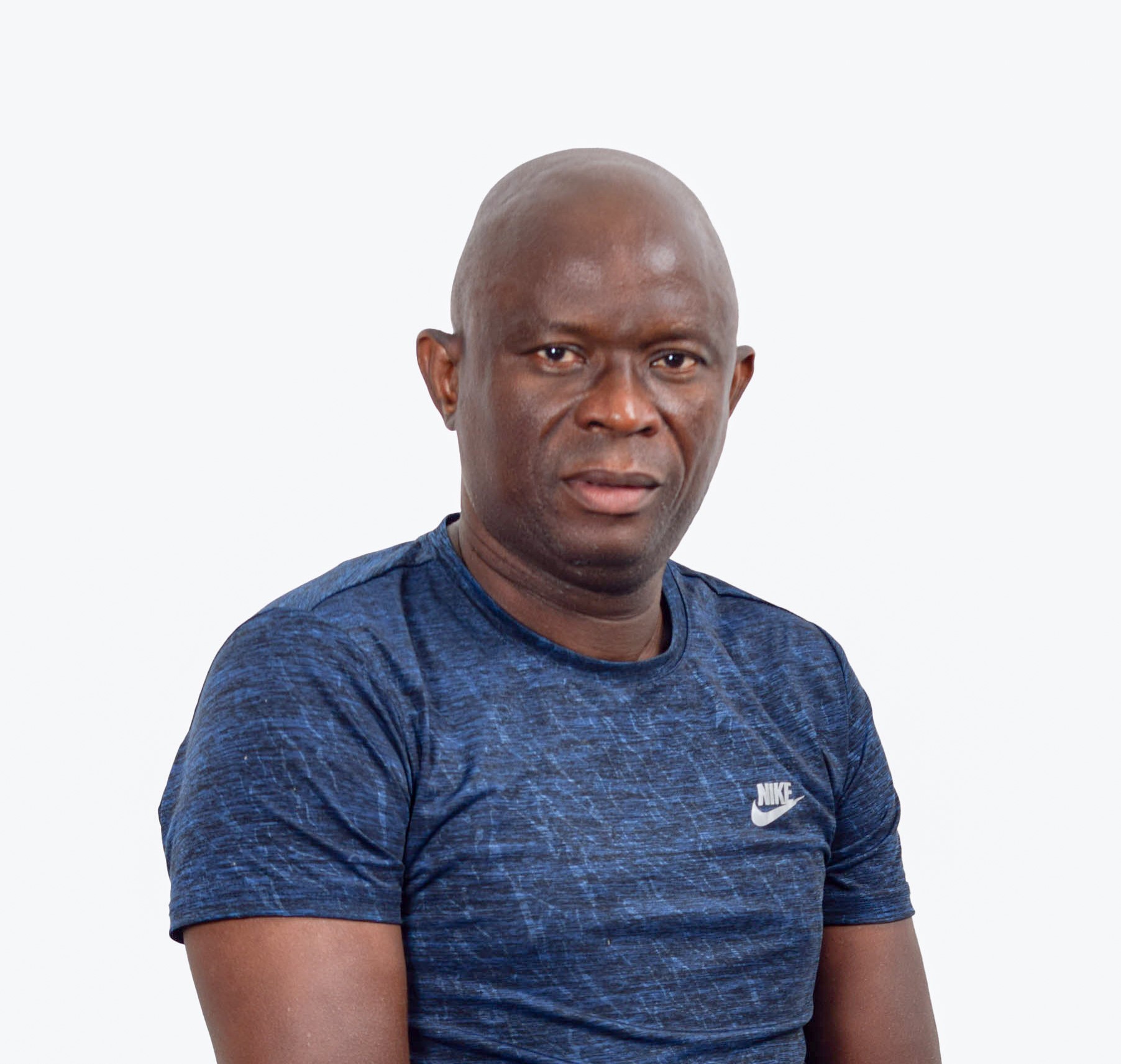
Cipriano da Silva owner of renewable energy project.
| Area of Focus: | Energy |
| Region: | Cacheu |
| Product/Service: | Renewable energy. |
| No. Employees: | 2 |
This project aims to implement solar energy in the villages of Capo and Cacanda, providing electricity to stimulate small commercial units, thus promoting local economic development, entrepreneurship, and sustainability. By harnessing photovoltaic energy, it seeks to improve socio-economic conditions, foster local development, and reduce environmental impact. The objective is to facilitate local commerce, enhance living conditions, and mitigate greenhouse gas emissions, ultimately benefiting farmers, rural and urban communities, especially women, children, and youth in Cacheu villages. This initiative is expected to revolutionize local lifestyles, boost production and trade, and garner support from various stakeholders including local authorities, NGOs, research institutions, and the private sector.
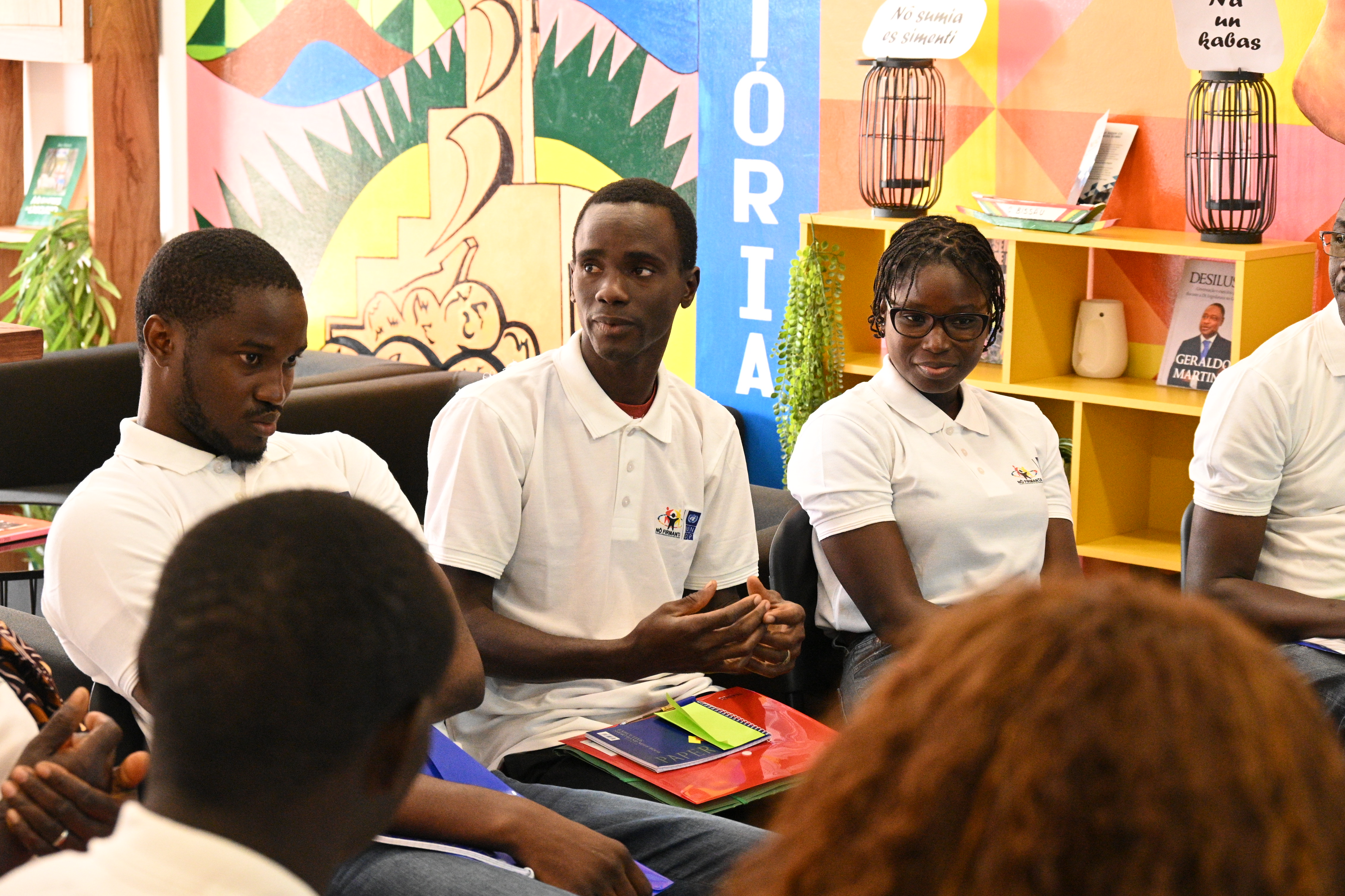
Nô Firmanta winners during week of training at Kau Criar
Insights
The winning profiles shed light on the critical priorities within the country, particularly concerning food security and agriculture. They exemplify local communities coming together, either as cooperatives or individuals, to address the pressing needs of their communities. Among the 3000+ applications received, agriculture emerged as the dominant focus, representing a significant portion of submissions. These findings provide invaluable insights into grassroots realities, not only informing UNDP of citizens' priorities but also signaling an opportunity for the Government of Guinea-Bissau to prioritize investments in agriculture. This sector serves as a pivotal entry point for addressing the fundamental needs of citizens.
Next steps
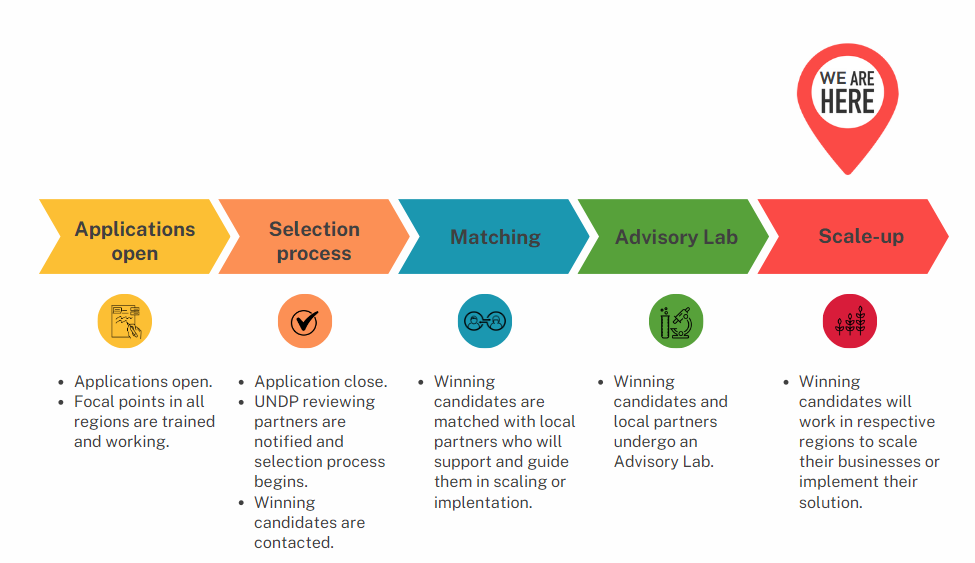
Nô Firmanta Timeline

 Locations
Locations